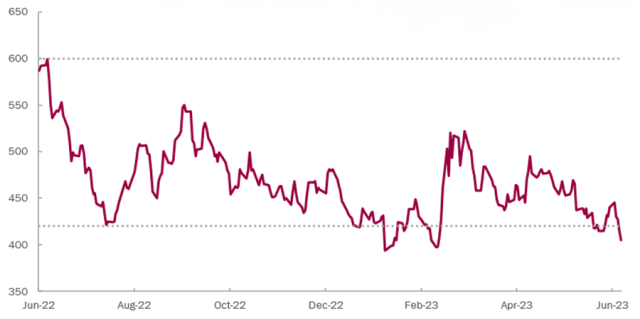How Effective Middle Management Drives Business Performance

Table of Contents
The Pillars of Effective Middle Management
Effective middle management isn't just about overseeing day-to-day operations; it's about strategically guiding teams towards shared goals and fostering a high-performing work environment. Three key pillars support this:
Strategic Communication and Alignment
Effective middle managers are masters of communication, ensuring that company goals and strategies are clearly understood and embraced by their teams. This requires more than just top-down directives; it involves creating a culture of open dialogue and feedback.
- Transparent communication channels: Utilizing various methods – regular team meetings, email updates, project management software – to ensure consistent and clear information flow.
- Regular team meetings: Establishing consistent meeting schedules dedicated to updates, problem-solving, and open discussion.
- Effective feedback mechanisms: Implementing systems for both upward and downward feedback, fostering a culture of continuous improvement.
- Translating company vision into actionable team goals: Breaking down overarching company objectives into specific, measurable, achievable, relevant, and time-bound (SMART) goals for individual teams.
Strong communication strategy and goal alignment are crucial for effective middle management, leading to a unified and focused team.
Talent Development and Mentorship
Beyond task management, effective middle managers prioritize the growth and development of their team members. This involves identifying talent, providing opportunities for skill enhancement, and fostering a supportive mentorship environment.
- Performance management: Conducting regular performance reviews, providing constructive feedback, and setting clear expectations for individual performance.
- Skills training and development: Identifying skill gaps and providing access to training programs, workshops, or external resources to upskill team members.
- Mentorship programs: Pairing experienced employees with newer team members to provide guidance, support, and career development advice.
- Employee growth opportunities: Creating pathways for career advancement within the company, fostering employee loyalty and retention.
- Succession planning: Identifying and developing high-potential employees to ensure a smooth transition of roles and responsibilities.
Investing in employee development is a key aspect of effective middle management and crucial for talent management and leadership development.
Performance Monitoring and Optimization
Effective middle managers are not just reactive; they proactively monitor team performance, identify areas for improvement, and implement corrective actions. This involves using data to inform decisions and drive continuous improvement.
- Key Performance Indicator (KPI) monitoring: Tracking relevant metrics to measure team performance against established goals.
- Performance reviews: Regularly assessing individual and team performance to identify strengths and weaknesses.
- Process improvement initiatives: Implementing strategies to streamline workflows, reduce inefficiencies, and enhance productivity.
- Problem-solving and conflict resolution: Effectively addressing challenges and conflicts within the team to maintain a positive and productive work environment.
- Data-driven decision-making: Utilizing performance data to inform strategic decisions and make necessary adjustments.
By focusing on performance management and process optimization, effective middle managers contribute significantly to the overall success of the organization.
The Impact of Effective Middle Management on Business Performance
The benefits of effective middle management extend beyond individual team performance; they directly impact the overall success of the business.
Increased Employee Engagement and Productivity
When employees feel valued, supported, and challenged, their engagement and productivity soar. Effective middle managers cultivate this environment.
- Improved employee morale: Fostering a positive and supportive work environment where employees feel respected and appreciated.
- Reduced employee turnover: Creating a culture of growth and development reduces the need for constant recruitment and training.
- Increased efficiency: Streamlined processes and effective communication lead to greater efficiency in task completion.
- Higher quality output: Well-trained and motivated employees deliver higher quality work.
- Improved team collaboration: A strong team environment facilitates collaboration and knowledge sharing.
Investing in employee engagement is a direct path to productivity improvement.
Enhanced Innovation and Adaptability
Effective middle management fosters a culture that embraces change and encourages innovation.
- Encouraging creativity and new ideas: Creating an environment where employees feel comfortable sharing their ideas and suggestions.
- Agile working practices: Embracing flexible and adaptable methodologies to respond to changing market demands.
- Embracing change: Facilitating the implementation of new processes and technologies, adapting to new market trends.
- Risk management: Identifying and mitigating potential risks to protect the team and the organization.
- Continuous improvement: Continuously evaluating processes and seeking ways to optimize performance.
This adaptability and focus on innovation allows the company to remain competitive in a constantly evolving market.
Improved Financial Results
Ultimately, the impact of effective middle management translates into tangible financial benefits.
- Increased profitability: Improved efficiency, productivity, and employee retention directly impact the bottom line.
- Reduced operational costs: Streamlined processes and reduced errors minimize operational expenses.
- Improved customer satisfaction: Higher quality products and services lead to increased customer satisfaction and loyalty.
- Enhanced market share: Increased innovation and adaptability enable the company to gain a competitive edge.
- Stronger ROI: Investments in employee development and effective management practices yield a strong return on investment.
Strong financial performance is a direct result of a well-managed and highly effective middle management team.
Conclusion
By investing in and developing effective middle management, organizations can unlock significant potential for improved performance and long-term success. Strong communication, robust talent development programs, and data-driven performance monitoring are cornerstones of effective middle management. These practices contribute directly to increased employee engagement, innovation, and ultimately, improved financial results. Assess your current middle management strategies today and discover how cultivating effective middle management can transform your business. Consider investing in leadership training programs and implementing robust performance management systems to build a stronger, more effective middle management team.

Featured Posts
-
 Lynas Texas Refinery Us Aid Request As Costs Escalate
Apr 29, 2025
Lynas Texas Refinery Us Aid Request As Costs Escalate
Apr 29, 2025 -
 Alan Cummings Favorite Scottish Childhood Pastime Revealed
Apr 29, 2025
Alan Cummings Favorite Scottish Childhood Pastime Revealed
Apr 29, 2025 -
 High Valuations In The Stock Market Bof As Rationale For Investor Calm
Apr 29, 2025
High Valuations In The Stock Market Bof As Rationale For Investor Calm
Apr 29, 2025 -
 The End Of Ryujinx A Nintendo Related Shutdown
Apr 29, 2025
The End Of Ryujinx A Nintendo Related Shutdown
Apr 29, 2025 -
 Nyt Spelling Bee Puzzle 360 Feb 26th Complete Guide To Solving
Apr 29, 2025
Nyt Spelling Bee Puzzle 360 Feb 26th Complete Guide To Solving
Apr 29, 2025
Latest Posts
-
 Helicopter Plane Near Collision Investigation Uncovers Pilot Negligence At Reagan Airport
Apr 29, 2025
Helicopter Plane Near Collision Investigation Uncovers Pilot Negligence At Reagan Airport
Apr 29, 2025 -
 New Evidence Reveals Pilot Error In Near Collision At Reagan Airport
Apr 29, 2025
New Evidence Reveals Pilot Error In Near Collision At Reagan Airport
Apr 29, 2025 -
 Reagan Airport Helicopter Plane Near Miss New Details On Pilot Negligence Emerge
Apr 29, 2025
Reagan Airport Helicopter Plane Near Miss New Details On Pilot Negligence Emerge
Apr 29, 2025 -
 From America To Spain A Contrast In Expat Experiences
Apr 29, 2025
From America To Spain A Contrast In Expat Experiences
Apr 29, 2025 -
 Spain Vs Usa An Americans Tale Of Two Very Different Lives
Apr 29, 2025
Spain Vs Usa An Americans Tale Of Two Very Different Lives
Apr 29, 2025
